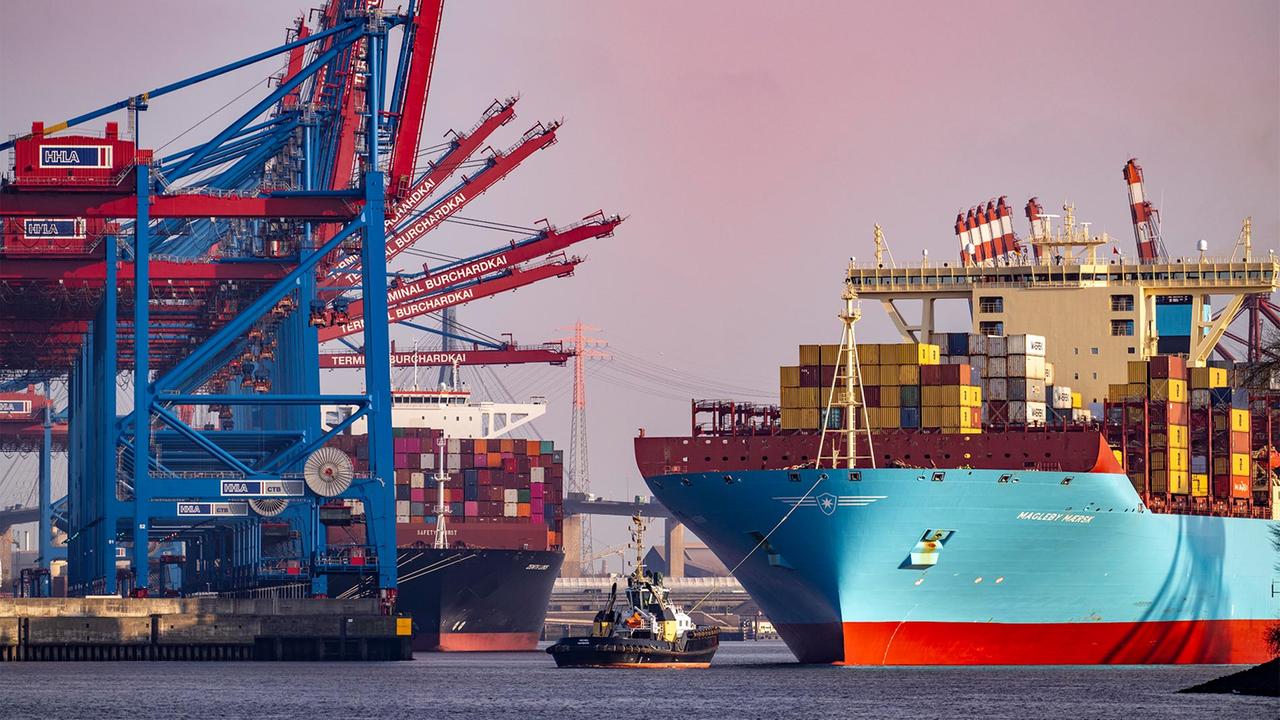Germany was once considered the “sick man of Europe”. Now memories of that time more than 20 years ago are coming back. For the younger generation it is a completely new experience.
“Economic forecast revised downwards”; “Germany in recession”; “Employees are worried about their jobs.” If the date were missing from reports about the state of the German economy, even experts would have to puzzle: Is the article current or does it come from the beginning of the 2000s?
At first glance, the two phases are similar, says Würzburg economic expert Peter Bofinger. The former economist comes to a clear conclusion: “Today the situation is much more dramatic than back then.” Bofinger is anything but a professional pessimist: in 2004, in times of mass unemployment and the Hartz IV debate, he published a book entitled “We are better than we believe”. Currently the title would probably be different, he says: “It's worse than we think.”
Germany in international Comparison at the bottom
It's bad enough when you listen to Siegfried Brandl. As managing director of the Brandl Home Company furniture store in Kelheim, Bavaria, he can currently greet his customers individually with a handshake. “People are totally insecure and that's why they don't buy,” he says and notices this every day. What is happening at the gates of Regensburg is also reflected nationwide in the GfK consumer climate index, which has remained in negative territory for years.
The bad news, reminiscent of the crisis more than 20 years ago, is currently jumping out at you: The federal government has revised its forecast downwards and expects economic output to decline by 0.2 percent this year. Germany is in recession for the second year in a row. The federal government is somewhat more optimistic for the coming year and expects an increase of 1.1 percent.
However, Germany remains at the bottom of the table internationally: Germany is being pushed down in rankings. The OECD is predicting strong growth for almost all other countries in the world – India, for example, is expected to grow by 6.8 percent in the coming year, China by 4.5 percent, Spain by 2.2 percent. Germany remains at the bottom and is sliding down faster than in the previous crisis.
Crisis as a new experience
Johannes Grupp steered his company Plastro Mayer in the Swabian Alb through the crisis in the early 2000s. Currently, worries are growing again. Two companies that had been long-time customers for his products suddenly closed down last week. “As usual, we planned with them, now they're just gone.”
For daughter and managing director Isabel Grupp, crisis is a completely new experience. She is now putting the brakes on costs. Layoffs are not an issue at all. “But if someone leaves,” explains the junior manager, “we now think about hiring temporary workers or not filling the position.” This is unusual for them, but typical for German companies in crisis.
Mass unemployment doesn't threaten
This also puts the labor market under pressure. Unemployment is only around half as high as it was during the crisis at the time, with an unemployment rate of ten percent or more. But the trend is upward, from the low of 5.0 percent in 2019 to six percent in September 2024. There is still a great need, for example in the social sector. “But anyone who loses their job in industry,” economist Bofinger makes clear, “will then have to forgo income.”
There are three factors that can give us courage in this bad situation: The mass unemployment from the noughties will probably not return – thanks to demographic change. Secondly, because of the comparatively low level of debt, the German state has every opportunity to improve the situation.
And thirdly, because of the reduced inflation, there is hope that the European Central Bank will cut interest rates again next week and thus stimulate the economy. These are at least three glimmers of hope in dark times – but nothing more.




